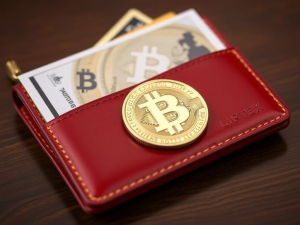
To minimize costs associated with cryptocurrency transactions, prioritize using wallets that allow for flexible fee settings. Some wallets enable users to choose between standard and priority transaction fees, influencing the speed of processing on the blockchain. A lower fee may result in slower confirmation times during peak network activity, while a higher fee typically ensures quicker processing.
The landscape of transaction fees is not static; they can vary significantly across different cryptocurrencies and exchanges. Bitcoin often experiences higher fees compared to other altcoins due to its popularity and network congestion. Monitoring real-time fee estimators can help investors select optimal times for executing transactions, maximizing their investment potential.
When engaging in cryptocurrency payments, always consider the total cost, including both the transaction fees charged by the wallet or exchange and any additional costs related to conversion rates. Understanding these expenses is crucial for effective budgeting of your cryptocurrency investments.
Utilizing hardware wallets can enhance security while managing transaction fees effectively. These wallets store private keys offline, reducing exposure to online threats and potentially lowering costs associated with hacks or thefts. Opting for reputable wallets is key to safeguarding assets while navigating the complexities of cryptocurrency transactions.
Calculating Transaction Costs
To accurately assess transaction costs in cryptocurrency, it is crucial to understand the components involved. Fees vary significantly based on network congestion and the blockchain's architecture. For instance, Bitcoin transactions can incur higher fees during peak times due to its limited block size, while Ethereum may have fluctuating costs influenced by gas prices.
Wallets often provide a feature to set custom fees. Opting for a higher fee generally results in quicker confirmation of transactions; however, this could inflate overall investment costs. Conversely, selecting a lower fee might delay transaction processing, especially during busy periods.
Utilize online calculators or wallet tools that estimate fees based on current network conditions. This data enables informed decisions regarding payments and helps mitigate unnecessary expenses when transferring cryptocurrencies.
Additionally, keep an eye on historical fee trends for specific cryptocurrencies. Understanding these patterns can assist in timing your transactions strategically, potentially leading to cost savings over time.
Security remains paramount; ensuring that any wallet used for transactions is reputable can prevent losses from malicious activities, which could negate the benefits of lower fees.
Choosing the Right Wallet
Select a wallet based on your specific needs for transactions and security. Hardware wallets like Ledger or Trezor offer robust security for long-term investments, while software wallets such as Exodus or Electrum provide convenience for frequent payments.
Consider the types of cryptocurrencies you plan to store. Some wallets support multiple currencies, while others are specialized. If you trade often on exchanges, look for wallets that integrate seamlessly with these platforms to minimize transfer fees.
Evaluate the wallet's transaction costs. Some wallets charge higher fees during peak times, impacting your overall investment strategy. Research user reviews focusing on transaction speed and reliability to ensure efficient payment processing.
Security features are paramount; look for options with two-factor authentication (2FA), backup capabilities, and encryption methods. This will safeguard your assets against theft and unauthorized access.
Lastly, test the wallet interface before committing significant amounts of cryptocurrency. A user-friendly interface can save time during transactions and enhance your overall experience in managing digital assets.
Optimizing Fee Payments
To minimize fees while conducting transactions in cryptocurrencies, consider the following strategies:
- Timing Transactions: Monitor network congestion. Fees tend to rise during peak times. Use block explorers to gauge current fee trends before initiating a transaction.
- Selecting Fee Options: Many wallets allow users to customize transaction fees. Opt for lower fees when speed is not critical, balancing cost and urgency based on your needs.
- Batching Transactions: If making multiple payments, combine them into one transaction. This approach reduces overall fees by consolidating costs.
- Choosing the Right Cryptocurrency: Different cryptocurrencies have varying fee structures. Research alternatives that offer lower transaction costs for specific use cases.
Security should also be a priority. Ensure that any wallet or exchange used for transactions employs robust security measures to protect your investments while managing fees effectively.
Review wallet functionalities regularly, as updates may introduce new features aimed at optimizing transaction costs and enhancing user experience.
Finally, stay informed about market conditions and technological advancements affecting cryptocurrency transactions. Engaging with community forums can provide insights into effective strategies others are using to manage fees efficiently.
Comparing Wallet Features
Select wallets based on the specific features that align with your transaction habits and investment strategies. Consider whether you need a hot wallet for frequent transactions or a cold wallet for long-term storage of cryptocurrencies.
Examine the user interface; a straightforward design can simplify payments and enhance your experience when managing multiple cryptocurrencies. Look for wallets that support various coins, allowing seamless exchanges without needing to transfer assets between platforms, which can incur additional fees.
Security features are paramount. Choose wallets that offer two-factor authentication (2FA), multi-signature support, and recovery options to safeguard your investments against unauthorized access.
Assess the fee structure of each wallet. Some charge flat fees per transaction while others may take a percentage of the transaction value. Understanding these costs is critical for maintaining profitability during trading or transferring assets.
Integration with exchanges can streamline buying and selling processes. Wallets that connect directly with major exchanges enable quicker transactions, reducing delays often associated with manual transfers.
Consider compatibility with decentralized applications (dApps) if engaging in blockchain-based services. A wallet that supports dApps can enhance functionality beyond simple transactions.
Finally, investigate customer support options available through the wallet provider. Reliable assistance can be invaluable in resolving issues related to transactions or access promptly.

You can be the first!